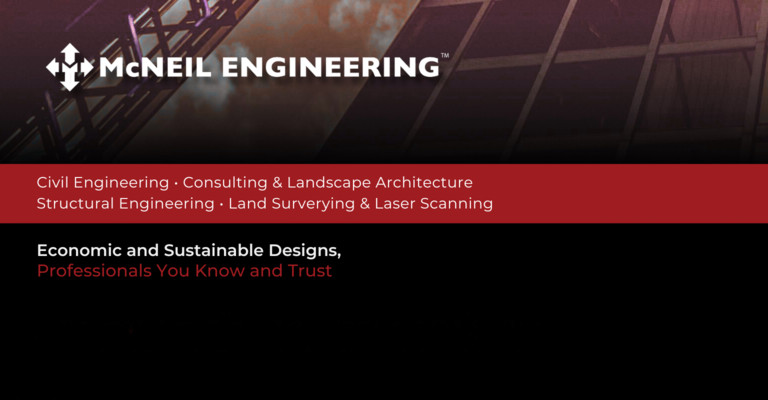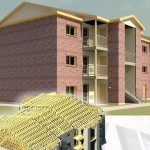 As cities continue to grow and the demand for efficient, sustainable, and resilient transportation systems increases, the future of transportation infrastructure is a topic of immense importance. Innovations in technology, shifts in societal needs, and the ever-present challenges of climate change are driving significant changes in how we plan, design, and maintain our transportation networks. This blog explores the future of transportation infrastructure, focusing on emerging innovations and the challenges that lie ahead.
As cities continue to grow and the demand for efficient, sustainable, and resilient transportation systems increases, the future of transportation infrastructure is a topic of immense importance. Innovations in technology, shifts in societal needs, and the ever-present challenges of climate change are driving significant changes in how we plan, design, and maintain our transportation networks. This blog explores the future of transportation infrastructure, focusing on emerging innovations and the challenges that lie ahead.
Innovations in transportation infrastructure
Smart transportation systems
One of the most promising advancements in transportation infrastructure is the development of smart transportation systems. These systems leverage technologies such as the Internet of Things (IoT), artificial intelligence (AI), and big data analytics to enhance the efficiency and safety of transportation networks. Smart traffic signals, for example, can adjust in real-time based on traffic flow, reducing congestion and improving travel times. Additionally, smart transportation systems can facilitate the integration of different modes of transport, creating seamless and efficient journeys for commuters.
Autonomous vehicles
The advent of autonomous vehicles (AVs) is set to revolutionize transportation infrastructure. AVs have the potential to reduce accidents, improve traffic flow, and increase the accessibility of transportation. However, the widespread adoption of AVs will require significant changes to existing infrastructure, including the development of dedicated lanes, advanced traffic management systems, and updated regulations and safety standards. As these vehicles become more common, cities will need to adapt their infrastructure to accommodate and maximize the benefits of autonomous technology.
Electric and sustainable transport
As the world moves towards reducing carbon emissions, the adoption of electric vehicles (EVs) and other sustainable transportation options is accelerating. This shift necessitates the development of extensive charging infrastructure, including fast-charging stations and integrated renewable energy sources. In addition to EVs, there is growing interest in alternative modes of sustainable transport, such as electric scooters, bicycles, and public transit options that utilize clean energy. Investments in these areas are crucial for creating a greener, more sustainable transportation network.
High-Speed rail and hyperloop systems
High-speed rail and hyperloop systems represent significant advancements in long-distance transportation. High-speed rail networks are expanding worldwide, offering faster, more efficient travel between major cities. Hyperloop technology, which involves passenger pods traveling through low-pressure tubes at incredibly high speeds, promises even greater improvements in travel times and energy efficiency. While still in the experimental phase, hyperloop systems have the potential to transform regional and intercity transportation.
Challenges in transportation infrastructure
Funding and investment
One of the primary challenges in developing future transportation infrastructure is securing adequate funding. Large-scale projects, such as the construction of high-speed rail networks or the implementation of smart transportation systems, require substantial financial investment. Public-private partnerships (PPPs) and innovative financing models are essential for bridging funding gaps and ensuring the successful completion of infrastructure projects. Additionally, governments must prioritize long-term planning and investment to address the evolving needs of transportation systems.
Regulatory and safety concerns
The rapid pace of technological innovation in transportation infrastructure presents significant regulatory and safety challenges. Autonomous vehicles, for example, require updated safety standards and regulations to ensure their safe integration into existing transportation networks. Similarly, the deployment of new technologies, such as high-speed rail or hyperloop systems, must adhere to stringent safety protocols. Policymakers and regulatory bodies must work collaboratively with industry stakeholders to develop comprehensive frameworks that balance innovation with safety and security.
Environmental and sustainability issues
While advancements in transportation infrastructure offer opportunities for reducing carbon emissions and promoting sustainability, they also present environmental challenges. The construction and maintenance of new infrastructure can have significant environmental impacts, including habitat disruption and resource consumption. To address these challenges, it is essential to incorporate sustainable practices into the planning and design of transportation projects. This includes utilizing eco-friendly materials, minimizing land use, and implementing measures to protect natural ecosystems.
Technological Integration and Interoperability
The successful implementation of future transportation infrastructure relies on the seamless integration of various technologies and systems. Ensuring interoperability between different modes of transport, communication networks, and data platforms is a complex challenge. Standardization and collaboration among industry stakeholders are crucial for creating cohesive and efficient transportation networks. Additionally, ongoing research and development are necessary to address technical issues and enhance the functionality of emerging technologies.
The role of civil engineering in shaping the future
Civil engineering plays a vital role in addressing the challenges and leveraging the innovations in transportation infrastructure. From designing resilient roadways and bridges to developing smart city solutions, civil engineers are at the forefront of transforming transportation systems. Their expertise in structural engineering, land surveying, and high-definition scanning (HDS) is essential for creating accurate, sustainable, and efficient infrastructure.
At McNeil Engineering, we are committed to delivering innovative and economical design solutions for the future of transportation infrastructure. Our comprehensive design services, including civil engineering, structural engineering, land surveying, high-definition scanning (HDS), and landscape architecture, are tailored to meet the evolving needs of the private and public sectors. We understand the complexities and challenges involved in modern transportation projects and strive to provide timely, responsive, and sustainable solutions. To learn more about our services and how we can help you achieve your transportation infrastructure goals, visit McNeil Engineering.
The future of transportation infrastructure is marked by exciting innovations and significant challenges. By embracing smart technologies, sustainable practices, and collaborative approaches, we can create transportation systems that are efficient, resilient, and environmentally friendly. As we navigate this evolving landscape, the role of civil engineering will be pivotal in shaping the infrastructure of tomorrow. Together, we can build a future where transportation networks enhance connectivity, promote sustainability, and improve the quality of life for communities worldwide.







